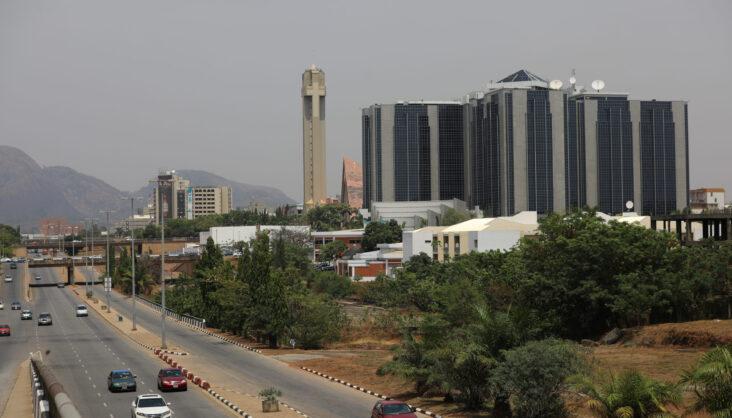Africa-Press – Mauritius. The coronavirus pandemic, which has been labeled a catastrophic black swan event, has undoubtedly impacted African economies. But discussions on the COVID-19 recovery must ensure that the continent’s quest for sustainable development is not forced to take a back seat.
The health crisis could lead to the continent experiencing a recession of record magnitude, of the likes not seen since the 1970s, along with a looming depression.
In 2013, the African Union, endorsed the Agenda 2063, the continent’s shared strategic framework for inclusive growth and sustainable development.
Two years later, the United Nation’s Sustainable Development Summit adopted the 2030 Agenda for Sustainable Development, popularly called the Sustainable Development Goals (SDGs).
Agendas 2030 and 2063 both continue and reinforce the vision of the 1980s for sustainable development and provide eminent platforms for African countries to set a common course aimed at attaining sustainable development at national and continental levels.
Even though the two Agendas are operating on very different timelines (15 years for the 2030 Agenda and 50 years for the Agenda 2063), the 17 SDGs fit neatly into the 20 goals of Agenda 2063.
A mapping exercise by the UN Economic Commission for Africa shows that the convergence of the two Agendas is 100.0% at goal level.2063 and 2030 Agenda for Sustainable Development into national development plans
When it comes to the SDGs, emerging evidence shows that several African countries are not on track to achieve the SDGs by the year 2030. The 2020 Africa SDG Index shows that the best-performing region is North Africa, while Central Africa is the worst-performing.
The high-ranking countries are Tunisia, Mauritius, Morocco, Algeria and Cabo Verde – but these top performers are still at least 35%, on average, away from achieving the SDGs by 2030 and their scores have not progressed much since 2015.
Low-ranking countries are South Sudan, Central African Republic, Chad, Somalia and Eritrea; mainly fragile states with high levels of poverty and conflicts in their territories.
The Agenda 2063 envisions The Africa We Want to guide Africa’s development for the next half-century.
It consolidates the earlier initiative, the New Partnership for Africa’s Development (NEPAD), into a forward-looking transformational framework for Africa. 54 countries have signed and 29 have ratified the agreement.
The first continental report showed mixed results in the implementation of the Agenda.
But the continent registered promising progress in attaining several goals and targets as defined in the First Ten-Year Implementation Plan of Agenda 2063 with an aggregate score of 32% against the 2019 targets.
The precise mandates of central banks vary; however, they tend to be legally framed as public institutions with independent authority to pursue their monetary policy objectives to largely achieve price stability, and other secondary goals.
READ MORE The governors of Africa’s Central Banks A further (often secondary) goal of central banking is to support wider economic policy objectives of elected national governments.
These promotional objectives, usually only explicitly stated in the statutes of central banks in emerging and developing countries, include sustainable development, social progress, and improving the quality of the environment.
A recent council on Economic Policies Discussion Note argued that central banks are the public instrument that allow societies to do whatever it takes, in the monetary-financial realm, to address the most pressing problems at a given historical juncture in the pursuit of collective social goals.
Looking across 135 central banks, an SOAS University of London Working Paper found that 12% have explicit sustainability mandates, while another 40% are mandated to support the government’s policy priorities, which in most cases include sustainable development goals.
The result of a similar study presented at the 6th National Symposium of the Sustainable Livelihoods Development Network for Africa (SLIDEN Africa) showed that 76% of the 34 African central banks in the study have either explicit or implicit mandates to promote sustainable development in their countries.
A paper presented at the 7th Climate Change Online Conference CLIMATE 2020 established that central banks are employing a range of interventionist approaches to support sustainable development.
These include: The achievement of the set of goals and targets defined in Agendas 2030 and 2063 in Africa represents an enormous challenge in terms of resources, extent and urgency.
It is important for central banks to proactively activate their prudential and regulatory powers in deploying the battery of instruments at their disposal for sustainable development in their countries.
Their objectives (or strategic plans) should also be redefined to reflect their sustainable development objectives as in the cases of Burundi, Gambia, Libya, and the Netherlands.
In fact, the central bank of the Netherlands’ mandate was updated in 2014 to include sustainable prosperity.
In ensuring the common good in the present and the future, there must be policy coherence to strike a balance between price stability and sustainable development.
It is also important to note that the promotional role of central banks in supporting sustainable development cannot be a substitute, but rather complementary, to the efforts of elected policy makers on the continent.
For More News And Analysis About Mauritius Follow Africa-Press







